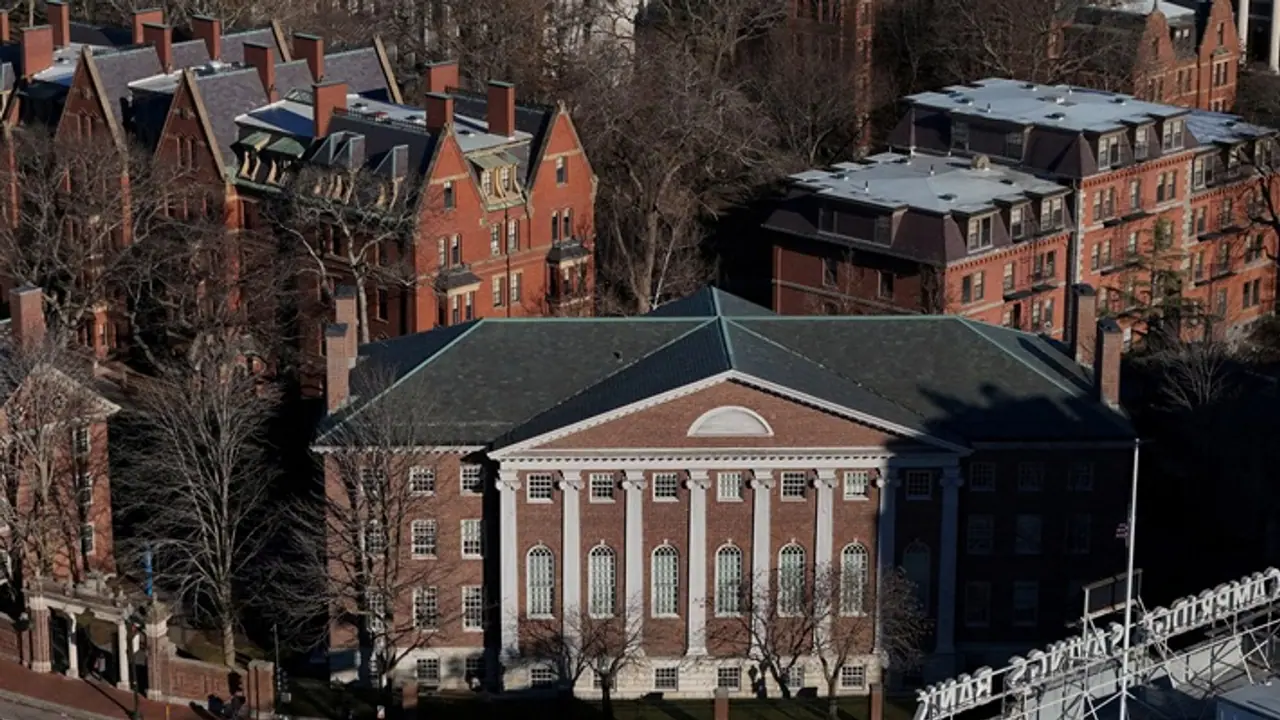The U.S. Department of Education has frozen $2.3 billion in federal funding to Harvard University after it refused to comply with demands from the Trump administration.
Washington DC: The U.S. Department of Education announced on Monday that it is freezing approximately $2.3 billion in federal funding from Harvard University following the institution’s refusal to comply with several directives from the Trump administration. These directives included dismantling diversity, equity, and inclusion (DEI) programs.

Harvard stated on April 14, 2025, that it would not adhere to the administration’s demands, which are part of a broader initiative framed as a response to antisemitism. The university’s stance could jeopardize nearly $9 billion in total funding.
In a letter sent last Friday, the administration outlined several expectations, including major governance changes, the adoption of so-called “merit-based” admissions and hiring practices, and a comprehensive audit of students, faculty, and leadership regarding their perspectives on diversity.
“Harvard’s statement today reinforces the troubling entitlement mindset that is endemic in our nation’s most prestigious universities and colleges - that federal investment does not come with the responsibility to uphold civil rights laws,” said a department task force on combating antisemitism in a statement.
The task force announced it is halting $2.2 billion in grants along with $60 million in contract funding to Harvard University.
The latest set of demands, building on an earlier letter, includes a ban on face coverings — seemingly aimed at pro-Palestinian demonstrators — and disciplinary action, including suspension, for students involved in occupying campus buildings during protests.
Additional conditions require the university to withdraw recognition and funding from any student organizations that promote or endorse criminal acts, unlawful violence, or harassment. The task force also urged a revamp of the admissions process to exclude international applicants deemed “hostile to American values” or those who express support for terrorism or antisemitism.
In response, Harvard President Alan Garber asserted that the university would not compromise on its independence or constitutional protections. He emphasized that while Harvard remains dedicated to combating discrimination, it firmly opposes what it views as excessive federal interference in its academic affairs.
“The University will not surrender its independence or relinquish its constitutional rights,” Garber wrote in a message to the community, as per the Harvard Gazette. “No government — regardless of which party is in power — should dictate what private universities can teach, whom they can admit and hire, and which areas of study and inquiry they can pursue," he added.
“These ends will not be achieved by assertions of power, unmoored from the law, to control teaching and learning at Harvard and to dictate how we operate,” he wrote. “The work of addressing our shortcomings, fulfilling our commitments, and embodying our values is ours to define and undertake as a community.”
The demands directed at Harvard are part of a broader strategy by the Trump administration to leverage federal funding as a means to influence the policies of prominent academic institutions. This effort aims to align campus governance with the administration’s political priorities. Officials have claimed that universities failed to adequately address what they describe as antisemitic incidents during last year’s campus demonstrations opposing Israel’s military actions in Gaza — a claim the universities have denied.
Harvard is among several Ivy League universities under pressure from the administration, which has also frozen federal funds to institutions such as the University of Pennsylvania, Brown, and Princeton in an attempt to secure compliance. The letter sent to Harvard mirrors one previously issued to Columbia University, which ultimately agreed to make changes under the threat of losing substantial government funding.


